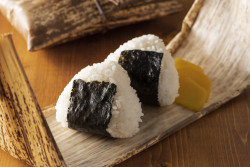
February 17, 2012
Can’t Stop the K-Pop
J-pop is losing the popularity contest in the West
By Metropolis
Originally published on metropolis.co.jp on February 2012

Despite Japan’s worldwide success in pop culture arenas such as film and animation, global pop music success has always been elusive. Ayumi Hamasaki, SMAP and their cohorts have a presence in Asia, but major label releases of Japanese artists in the West have always resulted in a laughable series of belly flops. I am not counting notable Japanese indie artists; but artists who want chart-topping, multi-platinum, Caesar’s Palace-size success.
Enter K-pop. Its buzz has been growing worldwide and last week Interscope Records dropped Girls’ Generation’s first album in the US. Not to be left out, Will.I.Am of the Black Eyed Peas has been grooming girl group 2NE1 for international stardom. The stage is set for a global Korean invasion, while in the world of J-pop everything has been downhill since Kyu Sakamoto’s “Sukiyaki” in 1963. How is it that J-pop can’t create a truly global star, while their Korean counterparts are dancing their way to the top in tight vinyl mini-skirts?
Let’s consider these factors:
The Jailbait Factor
While many K-pop artists are young, I never get a dirty feeling watching them. J-pop groups such as AKB48 take underage girls and over-sexualize them in tarted up outfits that look, to many Westerners, inappropriate on junior-high-school-aged girls. Though plenty of J-pop exists outside this realm, AKB48 and their progenitors (such as Morning Musume) give it a squeaky, geeky infantile stigma.
The Swagger Factor
With nasal voices and cutesy simpering, could J-pop females ever appeal to audiences used to the confident strut of divas such as Rihanna or Mary J. Blige? Something like “swagger” is certainly not a concept you can quantitatively measure, but in the few videos I have seen online of Korean pop singers, they have a dynamic confidence that appeals to Westerners. Go check out “I am the Best” by 2NE1 on YouTube and you’ll see what I mean.
The Parasite Producer Factor
The J-pop artists that have made major label releases in the States have had the assistance of super producers. Take Hikaru Utada, for example. She hired multi-platinum producers such as Stargate (Rihanna, Katy Perry) and Timbaland (Madonna, Missy Elliott). They not only failed to draft Utada a hit—they didn’t even push her in the right direction. It was obvious Utada had no one around her to tell her that “You’re easy breezy, and I’m Japanese-y” was possibly the worst lyrical couplet in all of recorded history. Utada’s releases flopped in North America, making her part of the losers clique alongside Toshinobu Kubota and Seiko Matsuda. You get the feeling these J-pop artists dished out large wads of cash to producers who were actually saving their best promoting power for the next album by a Western star like Beyoncé or Bruno Mars.
The Unknown Quantity Factor
There is a basic awareness about Japan in the West due to cultural exports such as anime, Pokémon, sushi and Toyota. Conversely, Korea has been under the radar. The average person might know there was a war in Korea, and that the northern part had a chunky nugget dictator who just died. And wow! Now they have dozens of beautiful girl groups who dance and sing whimsically for our pleasure. Recent media attention might come from South Korea’s new-kid-on-the-block factor, perhaps stemming from the fact that the ROK has only recently joined the table of economically advanced nations.
The K-pop Fun Factor
Between the flashiness and dancing, at its best K-pop has a modern sound and a transportive element to it—the videos take you to a kaleidoscopic future where people are beautiful and expressive. At its worst K-pop is an amalgam of manufactured pop clichés with corny outfits that look left over from ’90s La Bouche videos (remember “Be My Lover?”). K-pop is out to entertain you, whether you like it or not.
Will the K-pop phenomenon be a permanent trend that changes the game in the music world? There are signs it will, such as Madison Square Garden having already been sold out by several Korean acts in 2011. Also, videos on YouTube by K-pop stars regularly clock up tens of millions of views. Will this really add up to chart-topping success? It remains to be seen if K-pop will be more than just a novelty and crossover with the Western-music buying public. If we end up seeing K-pop singers duking it out for #1 on Billboard along with Lil’ Wayne and Lady Gaga, then J-pop artists might just end up crying into their kimchee.
Have something to say about this story? Share your comments below.







